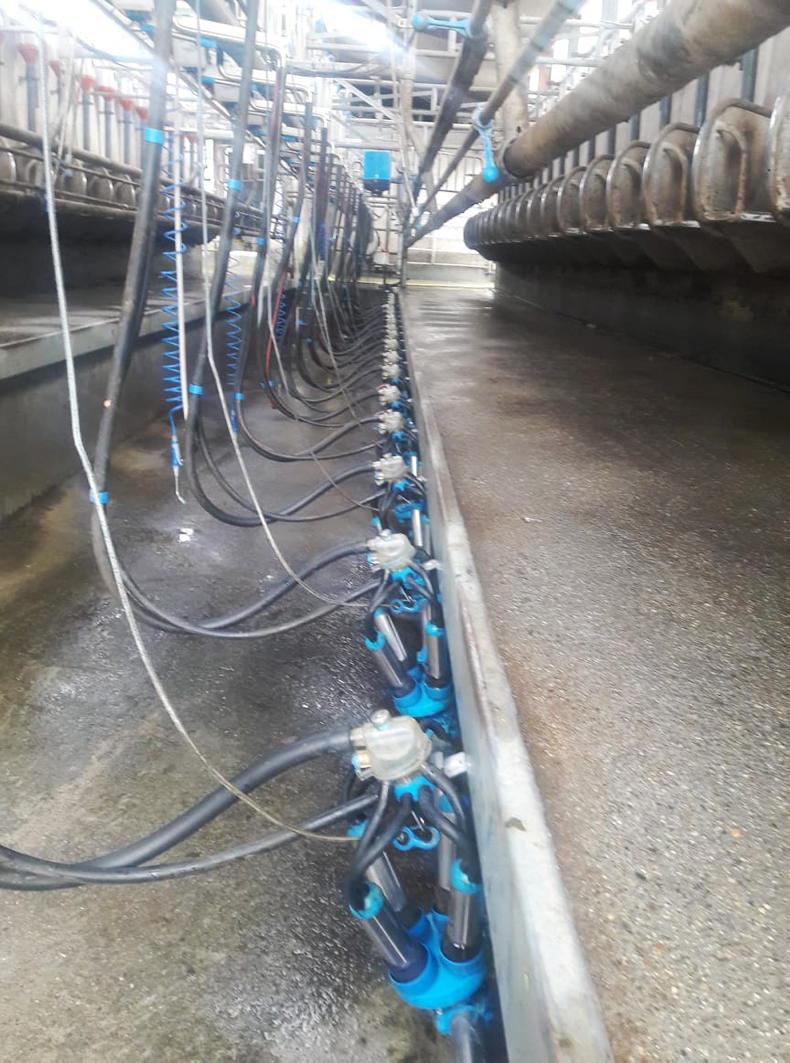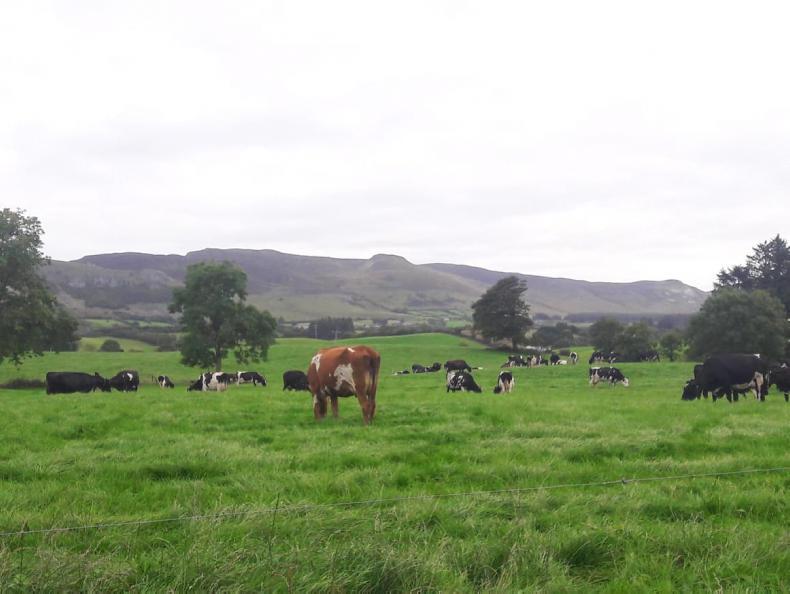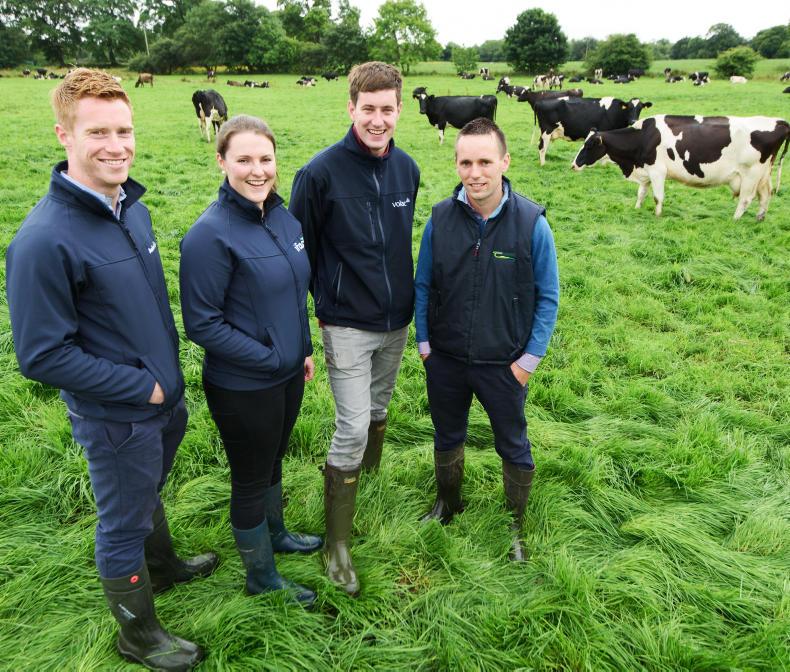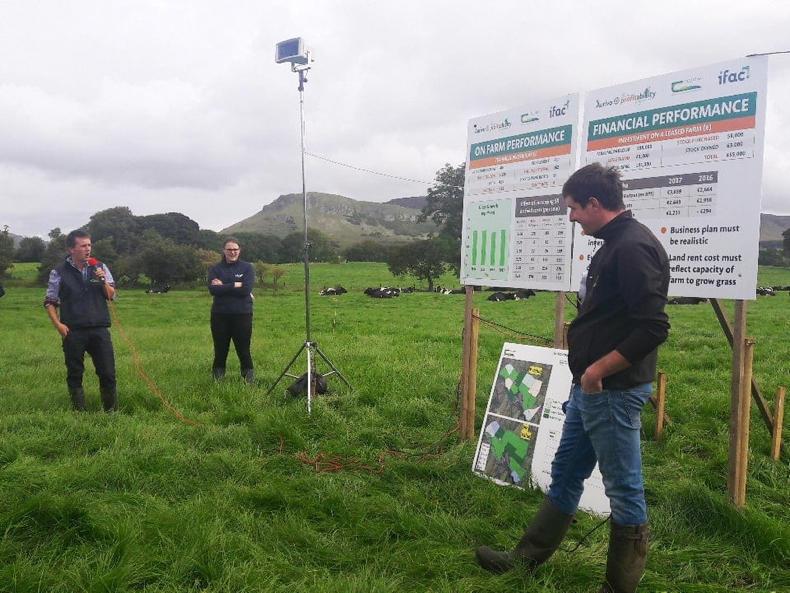Chris and TJ Tuffy entered a milk-producing farm partnership in 2012 after securing a 15-year lease on a 55ha block of land in north Co Sligo. Previously a beef farm and the site of Sligo AI, the farm had become overgrown and was two-thirds rushes, according to Chris.
They began reseeding the farm at the end of 2011 and started producing milk from the farm in 2012. They are milking 144 cows after downsizing slightly following a number of difficult grass-growing years on the farm.
All replacement heifers are reared on the Tuffys’ original home farm 35 miles away. TJ, Chris’s father, looks after the youngstock while Chris manages the cows and grass in Doonally. The Tuffys opted to lease the land after Chris decided he wanted to go dairy farming in 2008.
“At the time, I didn’t know if it was a problem or an opportunity when Chris decided to go farming, but we went with this option because otherwise he would have ended up in the south of the country or even in New Zealand managing a farm,” said TJ.

The Tuffys grow in the region of 12t DM/ha on average on very heavy soil. To date this year, they have grown 10.5t DM/ha so it will probably be an above-average year for grass growth. “The dry year suited us, whereas last year was a difficult wet year,” Chris said.
The partnership has given me shared responsibility. Having your name on the milk cheque gives you a sense of greater involvement as well as making sense from a business point of view
Last year, the herd produced 402kg MS/cow from 830kg of meal. Performance is not where Chris would like to see it but he is restricted on the ground they have. They have been crossbreeding the herd to suit the system and to increase milk solids but this takes time, Chris explained.
Generations
The farm walk was organised by ifac, Aurivo and Teagasc. Chris and TJ are a great example of inter-generational farming. They were faced with the challenge of creating two incomes from a farming enterprise that wasn’t going to sustain that.
While they are restricted on their performance due to land type, the Tuffys have created two incomes and met all repayments over the last number of years from the farm in Doonally. TJ has gone on to invest in the Western Pastures farm in Co Roscommon with a number of other farmers.
“The partnership has given me shared responsibility. Having your name on the milk cheque gives you a sense of greater involvement as well as making sense from a business point of view,” said Chris.
There were and continue to be challenges from running the farm. The initial business plan was based on milking 170 cows and producing 900,000l of milk. However, the farm is really only at optimum capacity with fewer cows. Milking 130 to 140 on the heavy farm, which is a stocking rate of 2.4 to 2.5 cows/ha, is more profitable and less work than milking 170 cows, which is a stocking rate of 3.1 cows/ha.
The Tuffys invested €455,000 in the farm between the milking parlour, housing, grazing infrastructure, reseeding and stock – both purchased and home-reared cows. As mentioned, the original business plan was to milk 170 cows. Because fewer cows are being milked than had been planned, output from the farm is less than budgeted.
In 2017, the gross output from the farm (net sales including inventory but excluding BPS) was €3,856/ha.

Total costs were €2,643 and net profit, before BPS, was €1,213/ha. But the net profit was -€294/ha after a low milk price in 2016.
The lesson here is that business plans must be realistic and capital investment and rent price carefully considered.






 This is a subscriber-only article
This is a subscriber-only article











SHARING OPTIONS: